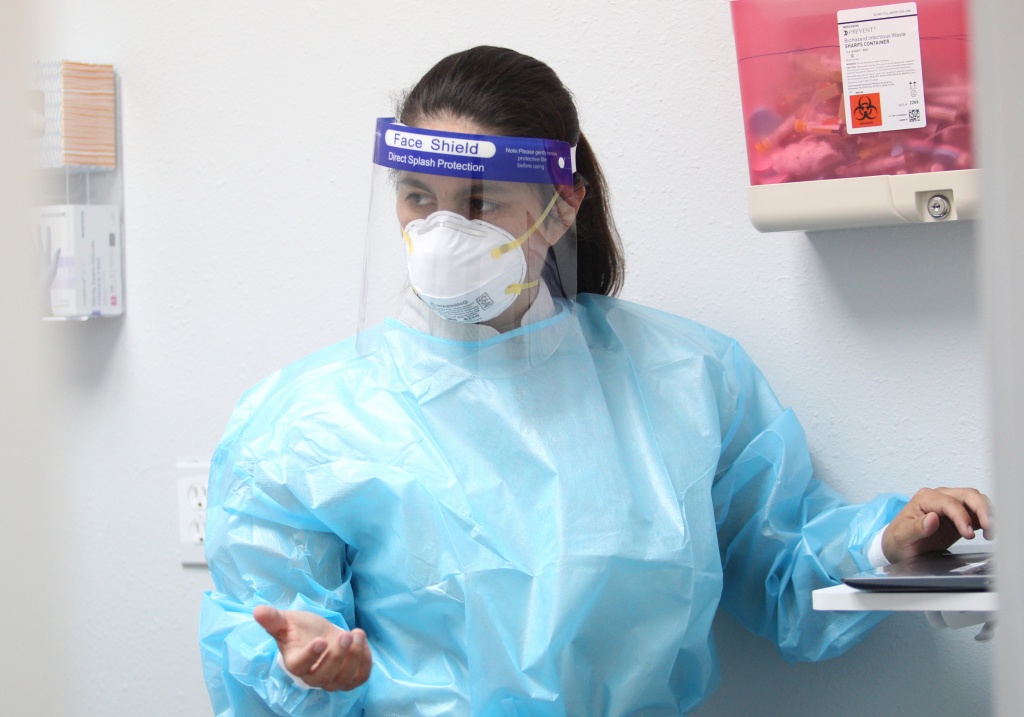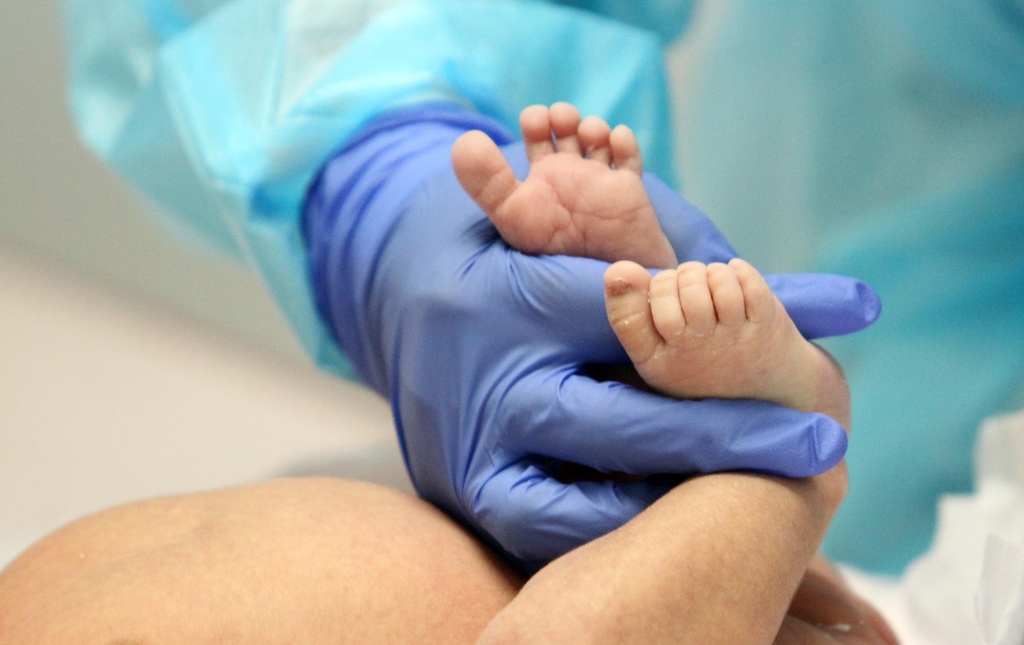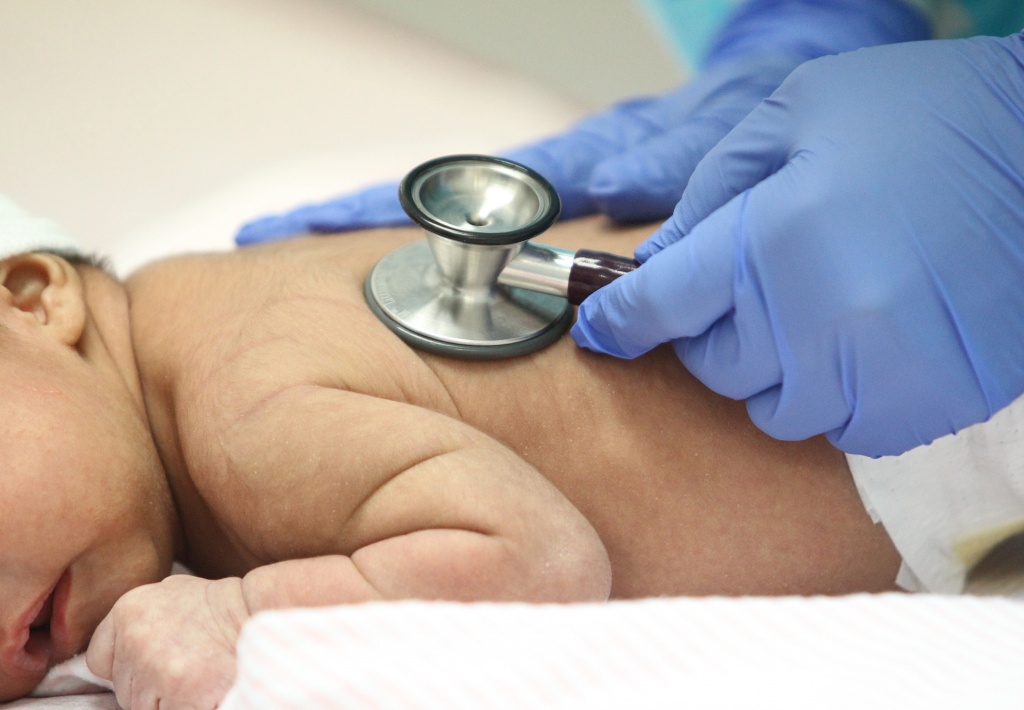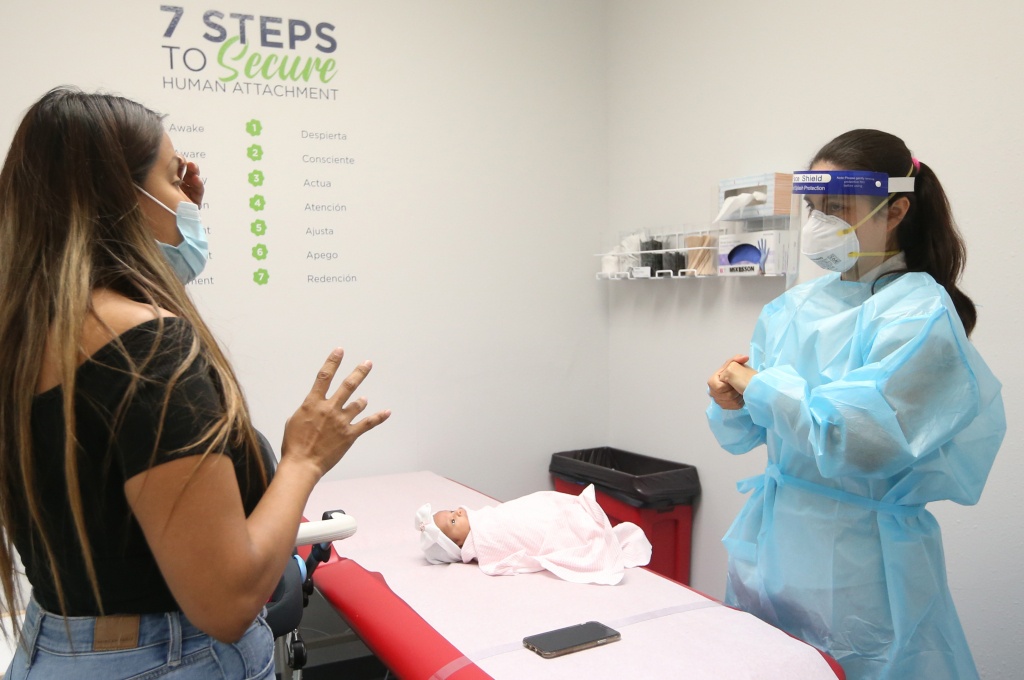Migrant Detention Centers, Mindfulness, and Making a Difference as a Pediatrician
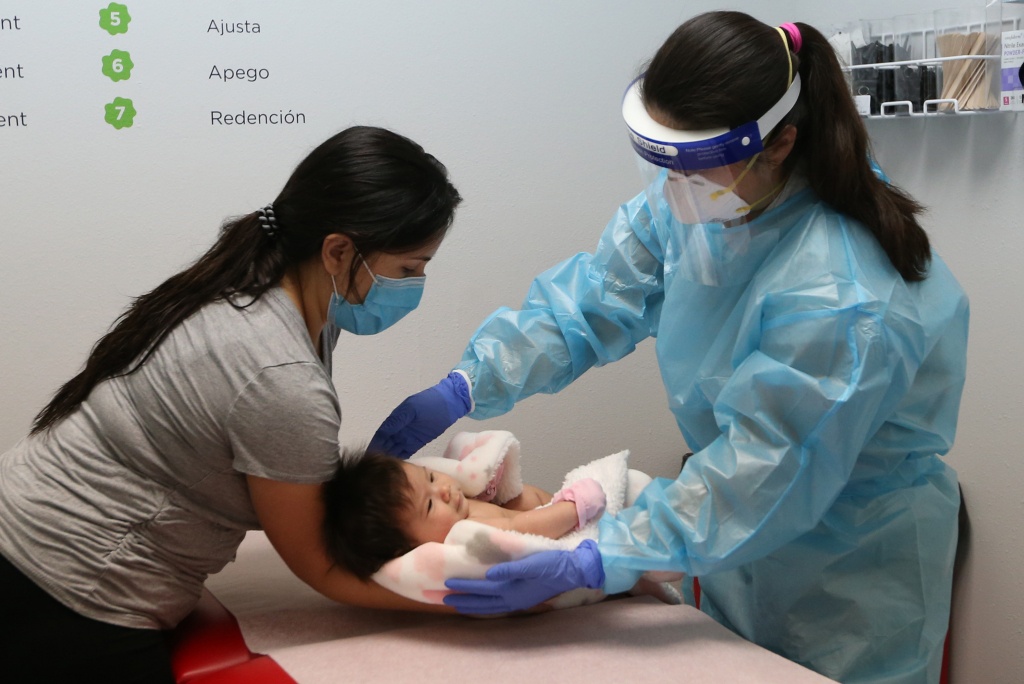
In the summer of 2018, Dr. Dolly Lucio Sevier’s friends were lighting up her phone. She had just been the subject of a July 3 article in The Atlantic that was gaining traction online.
In the story, reporter Jeremy Raff followed “Dr. Dolly,” as she’s affectionately known by her patients, as she made rounds inside the U.S. Border Patrol warehouse on Ursula Avenue in McAllen, Texas. A team of immigration attorneys had asked her to join them after their own alarming visit a few weeks prior.
What she found was horrifying. A baby who’d been fed from the same unwashed bottle for days. Kids who showed clear signs of malnutrition and dehydration. Others with symptoms of psychological trauma.
One 3-year-old girl was underweight, crying, and clearly frightened. Dr. Dolly examined her, noting the obvious trauma she was suffering because of separation from her parents. When the exam ended, the little girl lingered. Dr. Dolly reached out, offering to hold her.
The girl climbed into her lap. Within a minute, she was asleep. Everything else—the horrible conditions, the crying children, the stresses of life—seemed to melt away.
Friends who read the article applauded the effort. It earned her an invitation onto Anderson Cooper’s show on CNN. Dr. Dolly became a figure in the ongoing debate over immigration detention centers, telling CNN that children were kept in conditions that could be compared to torture facilities, with extreme cold temperatures, lights on 24 hours a day, and no adequate access to medical care, basic sanitation, water, or adequate food. But somehow, it still didn’t feel right.
“For everyone around me, it was a big deal. Like, ‘Hey! Congrats! That’s awesome!’” she says. “But I couldn’t feel it. I felt like this was not the type of thing that should be praised.”
Even during that moment, with a little girl asleep in her arms, Dr. Dolly felt like she wasn’t making a difference. All those children were sick. They needed help. She wasn’t doing enough.
Wearing the weight of a physician’s responsibility
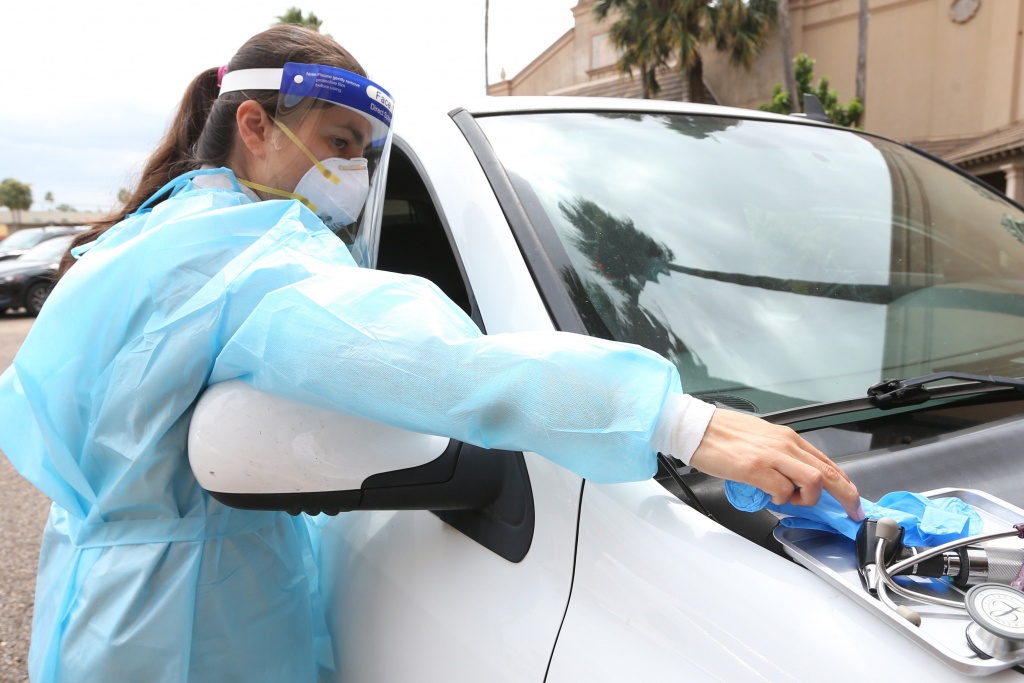
Dr. Dolly, a pediatrician, has always felt a tremendous sense of responsibility to make a difference—for her patients and her community. At times, it’s motivated her to go the extra mile for a sick child and their family or to get involved in community affairs. At other times, it’s mentally burdened her and burned her out.
“As a doctor, I always felt like it was my responsibility to help people. I think that’s probably true for a lot of doctors. You feel like you’re the one who people come to to fix their problems. Therefore, you gotta fix them,” she says.
That sense of responsibility is why Dr. Dolly has always strived to put herself in places where she could make the biggest difference. As a teenager in Brownsville, Texas, it was cool to call the city lame and dream of moving elsewhere. She humored that storyline for a while, but after heading to Austin for undergrad and Dallas for medical school, she realized there was plenty to be said for the big-city life, but she could make a bigger difference in Brownsville. “I thought that if this town really was so lame, I should go back and make it better,” she said.
“If fixing everyone else’s problems is the focus of your work, you let yourself down a lot,” [Dr. Dolly] explains. “Because you’re never going to fix all the problems.”
That’s what she did. Her husband opened the first coffee-bike shop in the city. She worked as a pediatrician, helping kids in need. She applied for and won a grant that she used to turn a neglected section of a park into a community children’s library.
Heading to the Ursula detention center was another step toward making a difference. But the combined force of witnessing so much suffering, being lauded for heroics she felt she didn’t deserve, and falling short of her own high expectations to solve everyone’s problems—even though she knew it was impossible—plummeted her into a state of existential ambiguity she couldn’t shake.
Putting the experience in focus
Amid a storm of congratulatory calls, Dr. Dolly found a singular Facebook message from an old friend from residency. The friend said she was a little worried about Dr. Dolly, because the article hinted that she might be compartmentalizing her own trauma.
Next, the friend suggested she take some time to understand what was happening internally. As a starting point, she recommended a book—Laura van Dernoot Lipsky’s Trauma Stewardship: An Everyday Guide to Caring for Self While Caring for Others.
“The whole world was congratulating me, but my friend, who’s a child abuse specialist, is like, ‘I don’t think you’re okay.’” Dr. Dolly says, admitting that she wasn’t. “So I read the book. And it was so good. That was my centering point.”
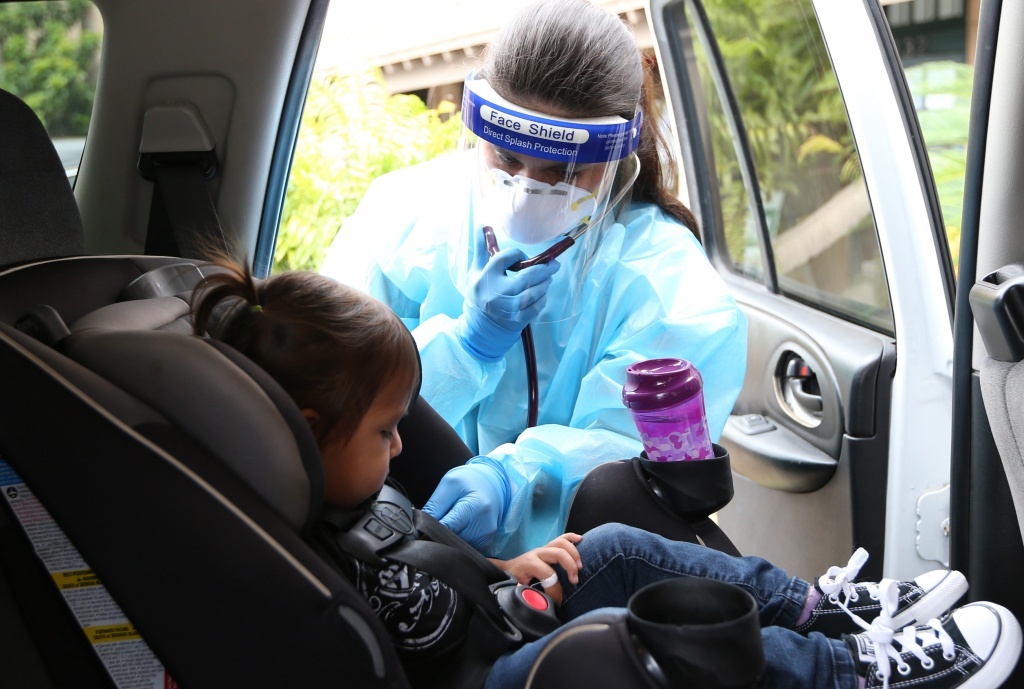
Dr. Dolly took a look in the mirror. She got some help. And she spent a lot more time focusing on who she was, what she wanted to do, and how she could accomplish it while staying healthy and happy.
She decided that her lifelong goal—to uphold her sense of responsibility by making a difference—was a noble one that was worth doing. But she began to realize that she had framed it incorrectly. “If fixing everyone else’s problems is the focus of your work, you let yourself down a lot,” she explains. “Because you’re never going to fix all the problems.”
We can’t do everything at once. But I think if the goal is to be present and say, ‘I may not fix your problem, but I’m here with you, and I hear you, and I’m going to try my best,’—that’s what it’s all about.”
Reflection and insights from the book helped her recognize the significance behind the Atlantic article, the moment where she held the little girl in her arms, and all the phone calls and messages she received from friends. At the time, she believed she had fallen short and didn’t do anything to help the children on Ursula Avenue. But now she realized she did the best she could do—the best anyone could have done in that scenario—by being present with them.
“I went and I held a little girl, did that change her life? No. But in that moment, I comforted her,” she says. “When there’s nothing to do, what you have to do is just be there. And that’s so true of my career as a pediatrician. I think if we’re pursuing this goal of ‘I’m always going to fix you, I’m going to be the most productive or the most successful,’ we’re all going to fall short. We can’t do everything at once. But I think if the goal is to be present and say, ‘I may not fix your problem, but I’m here with you, and I hear you, and I’m going to try my best,’—that’s what it’s all about.”
Making the right kind of difference
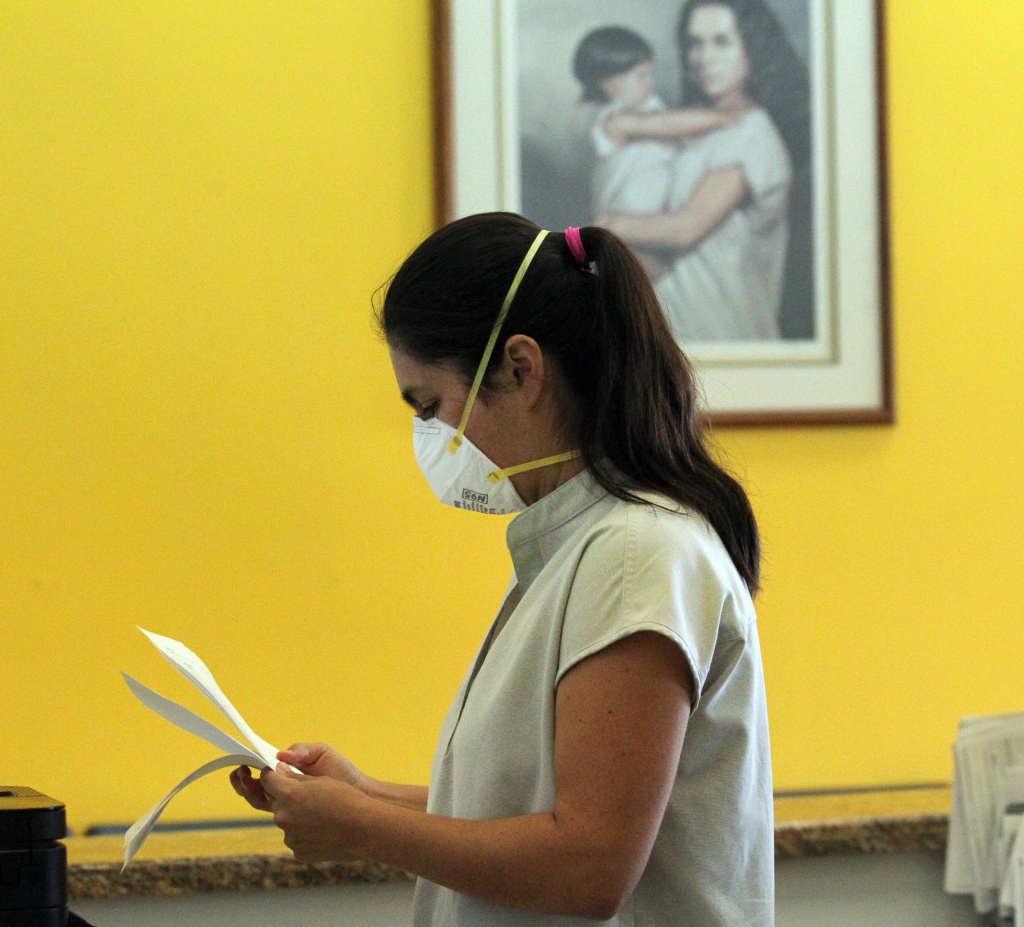
That’s the philosophy behind Dr. Dolly’s independent practice, aptly named Mindful Pediatrics, launched in February 2020 in Brownsville. Practicing independently allows her to define the metrics for success, which have less to do with doing and more with being—being present with patients and their families during troubling times, being transparent with them about their health, and being realistic with herself about what she can and can’t accomplish.
On the business side, she manages operations so that she retains maximum time to mindfully practice pediatrics. She’s the only physician and employs just one medical assistant and one front desk clerk—all three know their patients well. The practice is new and, like any small business, must navigate uncertain waters as thousands of new cases of COVID-19 pop up across Texas every day. But for Dr. Dolly, that’s secondary to the fact that she gets to be present with people who need her.
She knows she’s helping. She knows she’s doing enough. And that’s made quite the difference.
